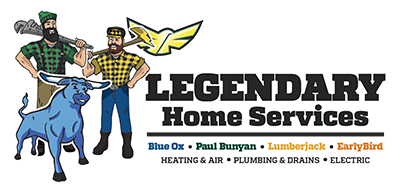No matter what the season, allergens can pose a real problem to allergy and asthma sufferers. And, unfortunately, the problem is not confined to just the outdoors. Allergens can regularly and unsafely enter the home. Many homeowners often complain that their allergies are just as bad indoors as they are outdoors and are often looking for solutions to ease their discomfort. The good news is there are a number of ways to deal with these contaminants and provide better air quality in your home. Consider the following ways to effortlessly make your home more comfortable by improving the air quality throughout the house.
Getting Rid of Dust.
This is one of the most important ways to cut down on allergens. Simple things can be done to handle the problem such as regularly vacuuming carpeted areas, sweeping and mopping non-carpeted floors, and shaking rugs and furniture cushions to get out extra dust and dander. Also, be sure to change bedding on a weekly basis. Consider purchasing high-quality disposable filters at your local hardware store. They are able to capture a large percentage of dust and are a less expensive option than an electrostatic filter. An electrostatic filter connects to a home’s ductwork. Although it is an investment, it is particularly valuable for residents who suffer from year-round allergies and can greatly increase the air quality.
Ductwork.
All ductwork in the home should be checked for air leaks. This includes connections at floors, walls and ceilings. All leaks should be completely sealed with metal tape and mastic-tape sealant. This will help improve the air quality by stopping allergens and other harmful particles from entering the ducts as they pass through unheated spaces and then circulate through a home’s living areas.
Air Cleaner.
Those who wish to have a higher air quality may want to consider an air cleaner. An air cleaner can remove particles in the air such as pet dander, smoke, dust mites and pollen. A quality air cleaner and also remove microbial contaminants including viruses, germs, bacteria, molds, spores and fungi. This device requires no additional energy usage, as it works with the home’s existing heating and air-conditioning system.
To improve the air quality in your home and guard against allergens, simply call a professional and have them take a look at the best solution for your home based on its size, age and your particular allergen issues. An HVAC professional can ensure you get the best preventative measures with the best results.


